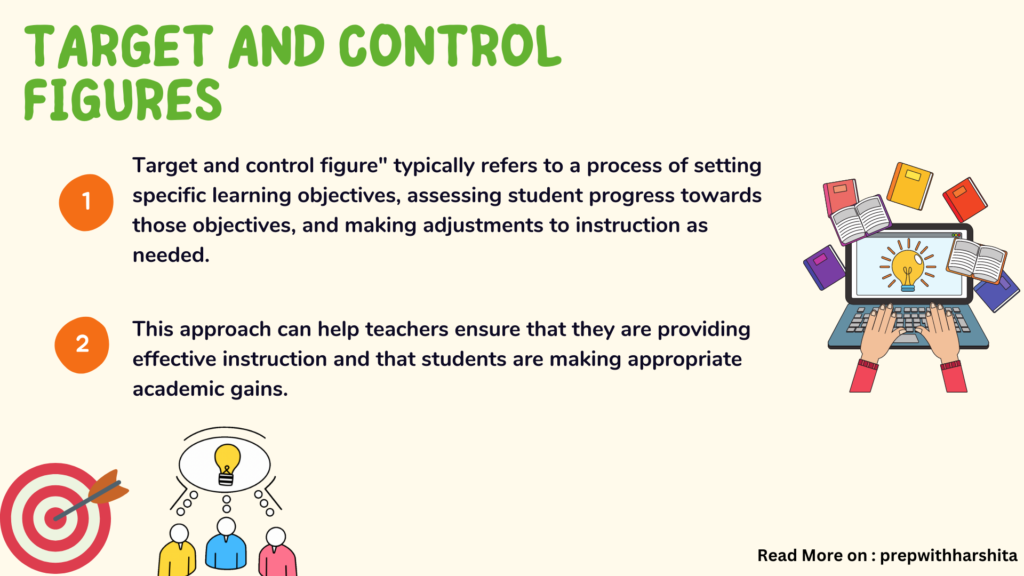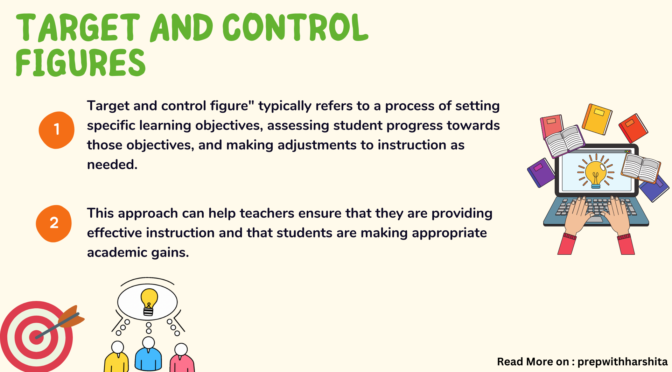Target and control figure in education planning refers to a process of setting specific learning objectives, assessing student progress towards those objectives, and making adjustments to instruction as needed.
Target Figures
The “target figure” refers to the specific learning goals or objectives that a teacher sets for their students.
These objectives should be specific, measurable, achievable, relevant, and time-bound (SMART).
Control Figures
The “control figure” refers to the process of monitoring and assessing student progress toward those learning objectives.
Teachers use a variety of assessments, such as tests, quizzes, projects, and classroom observations, to determine how well students are meeting the target figure.
Based on the data collected from these assessments, teachers can make adjustments to their instruction to help students achieve the desired learning outcomes.
Also Visit: Prep with Harshita
Use of Target and Control figures in Education
This approach can help teachers ensure that they are providing effective instruction and that students are making appropriate academic gains.
Here are some steps that teachers can take to incorporate target and control figures into their planning:
- Determine the learning objectives: Identify the specific skills and knowledge that you want students to acquire during the unit or lesson. These objectives should be specific, measurable, achievable, relevant, and time-bound (SMART).
- Assess students’ prior knowledge: Before starting a new lesson, assess students’ existing knowledge of the topic. This can help you identify areas of strength and weakness and tailor your instruction accordingly.
- Develop assessments: Create assessments that align with the learning objectives. These assessments should be varied and should include formative assessments (e.g. quizzes, check-ins) as well as summative assessments (e.g. tests, projects) to monitor progress.
- Monitor progress: Regularly assess student progress against the learning objectives. Use this data to adjust your instruction and provide targeted interventions for students who are struggling.
- Analyze and reflect: Analyze the data collected from assessments and reflect on your teaching strategies to determine what worked well and what could be improved upon in the future.
By incorporating target and control figures into their planning, teachers can help ensure that they are providing effective instruction and that students are making appropriate academic gains.



I will immediately grasp your rss as I can not to find your email subscription hyperlink or newsletter service. Do you have any? Kindly let me recognise in order that I could subscribe. Thanks.
I don’t think the title of your article matches the content lol. Just kidding, mainly because I had some doubts after reading the article.